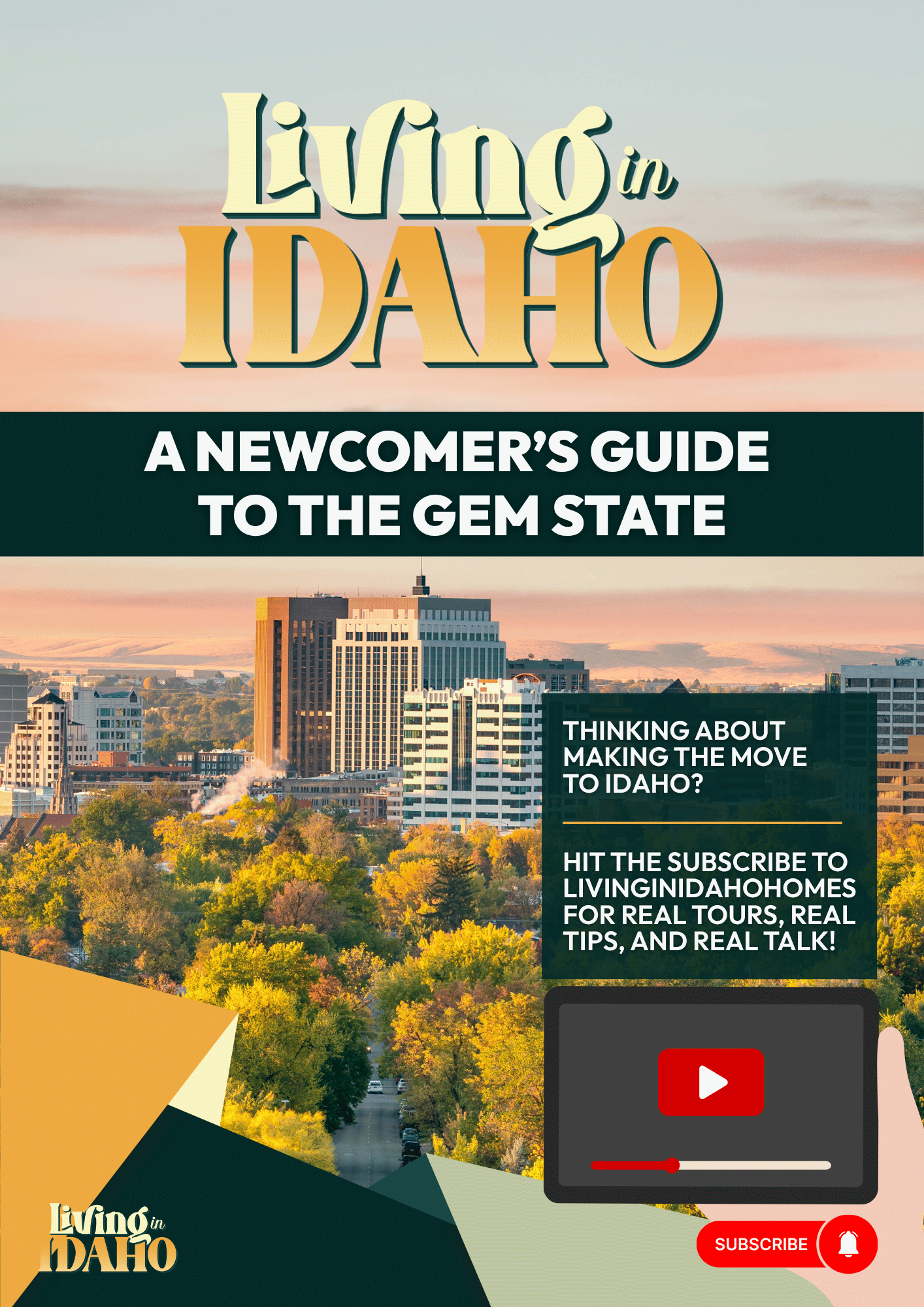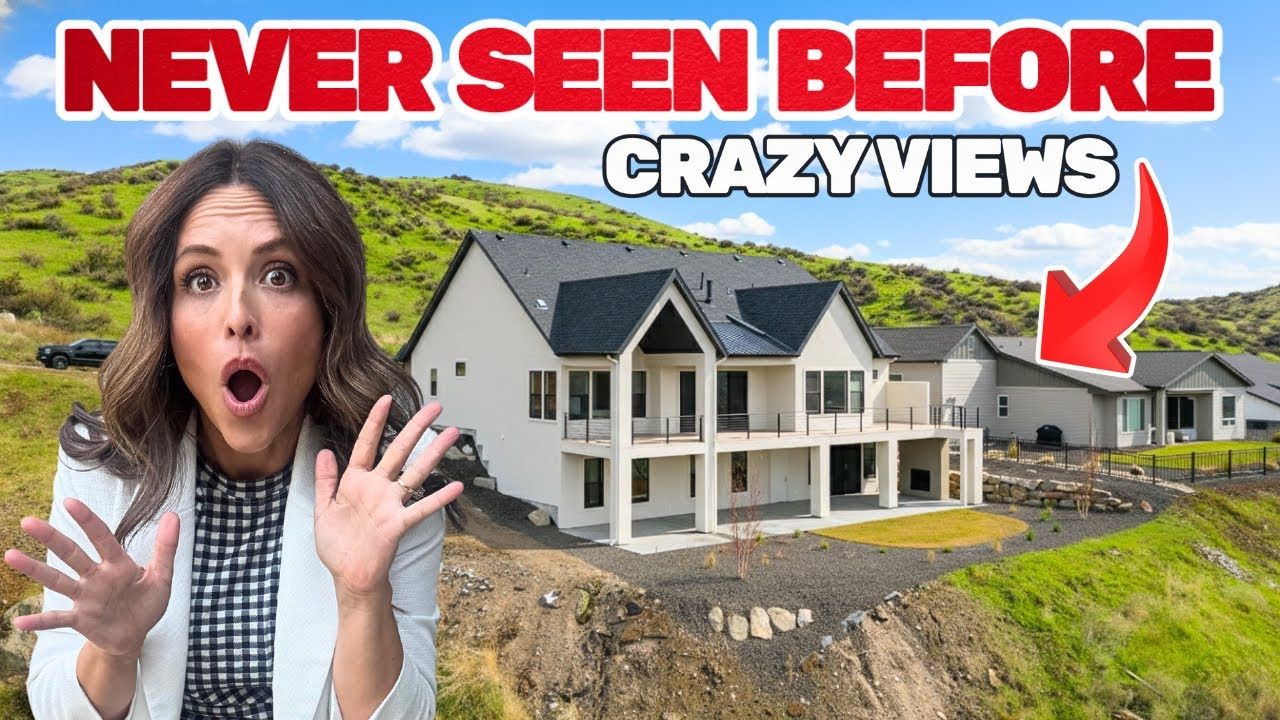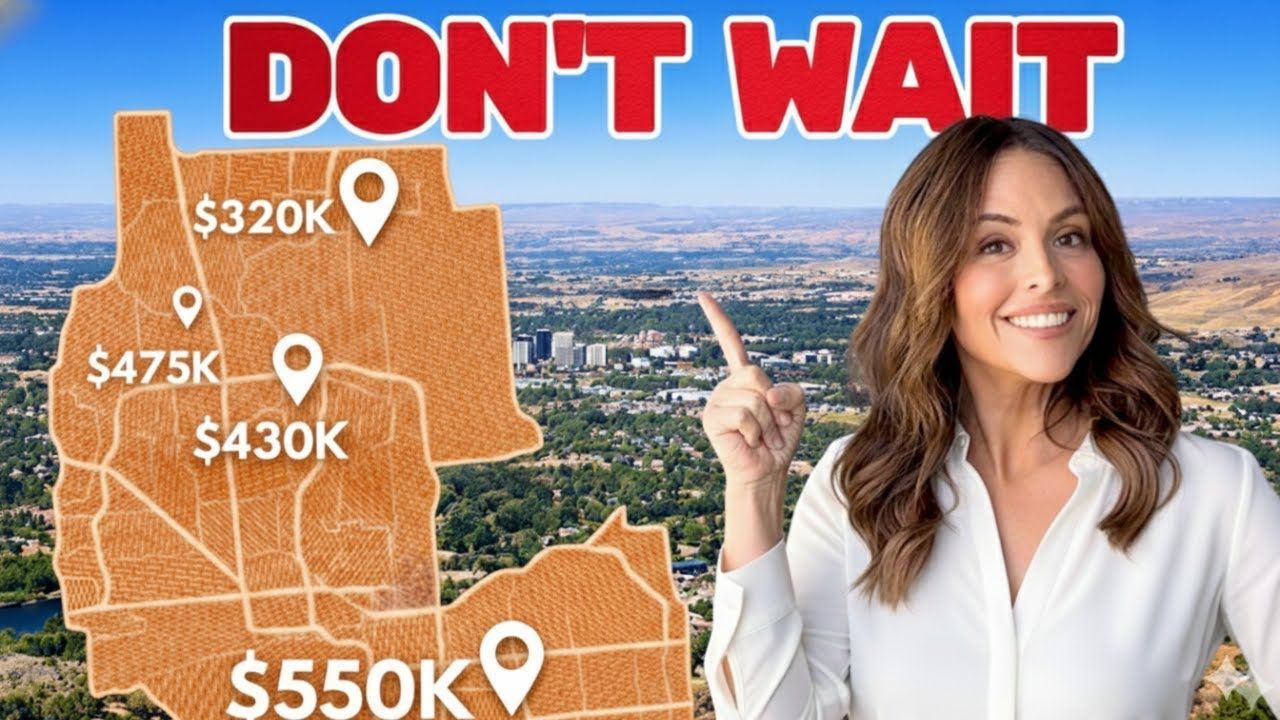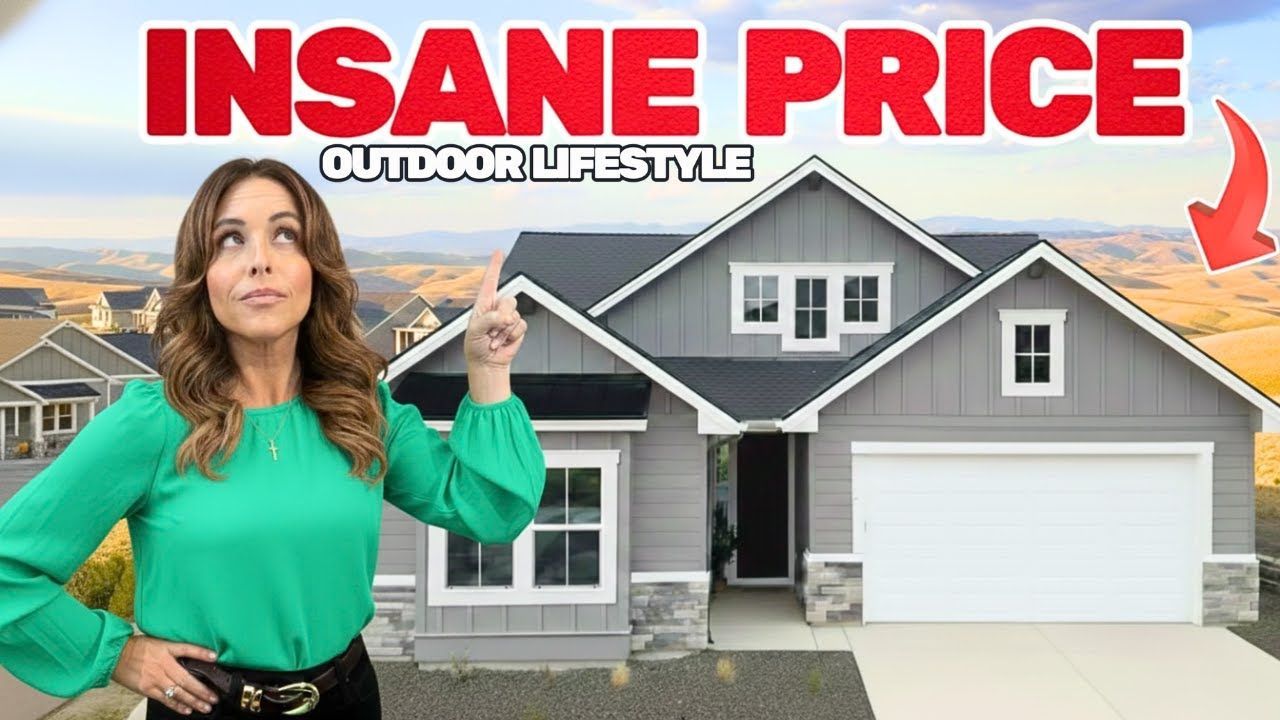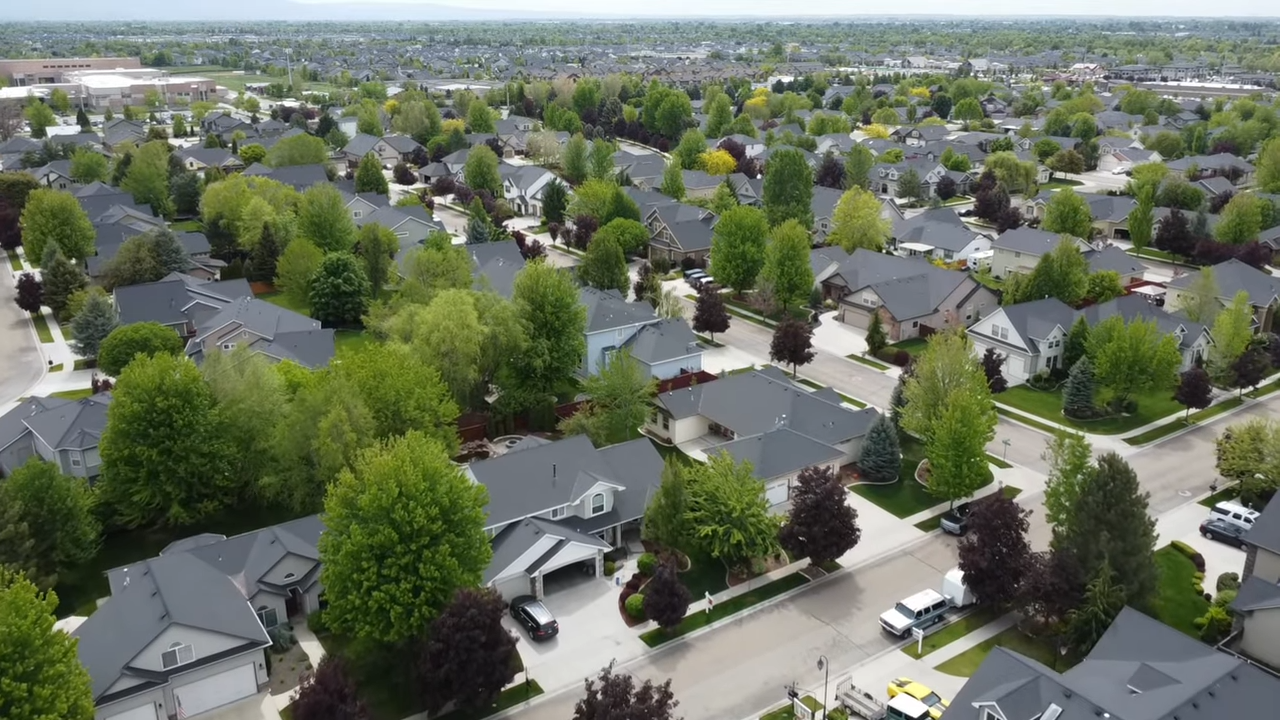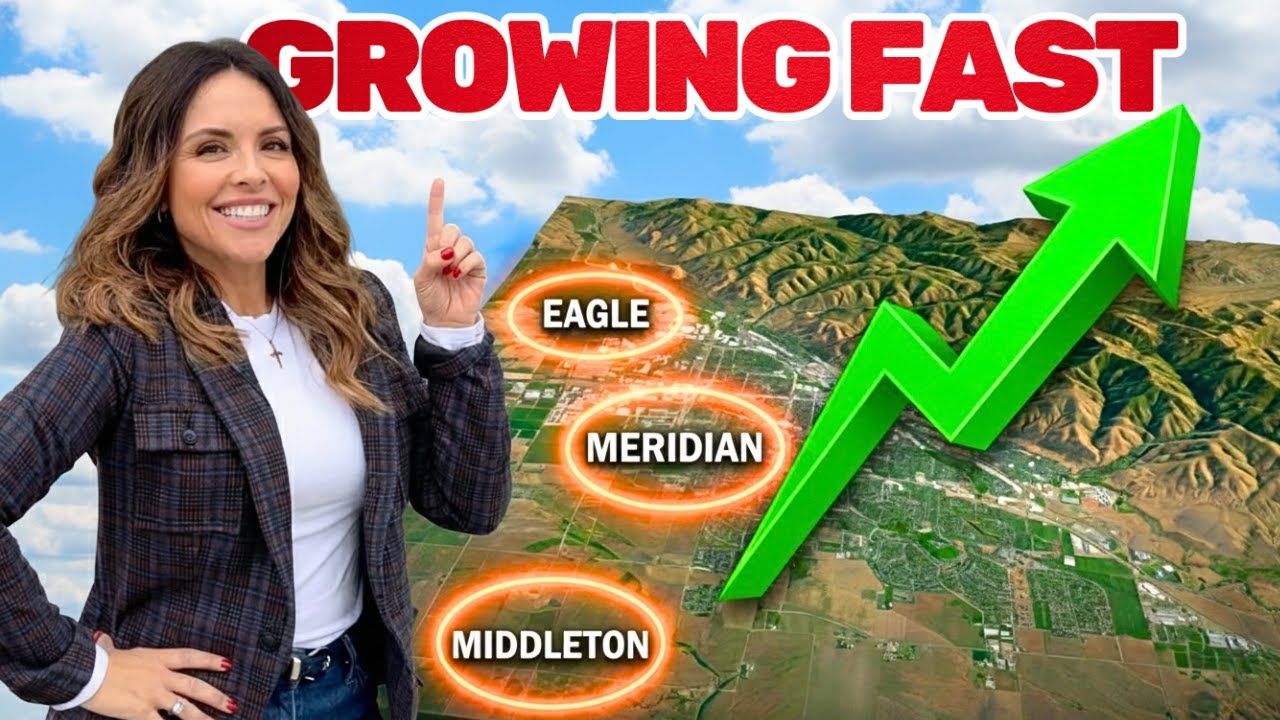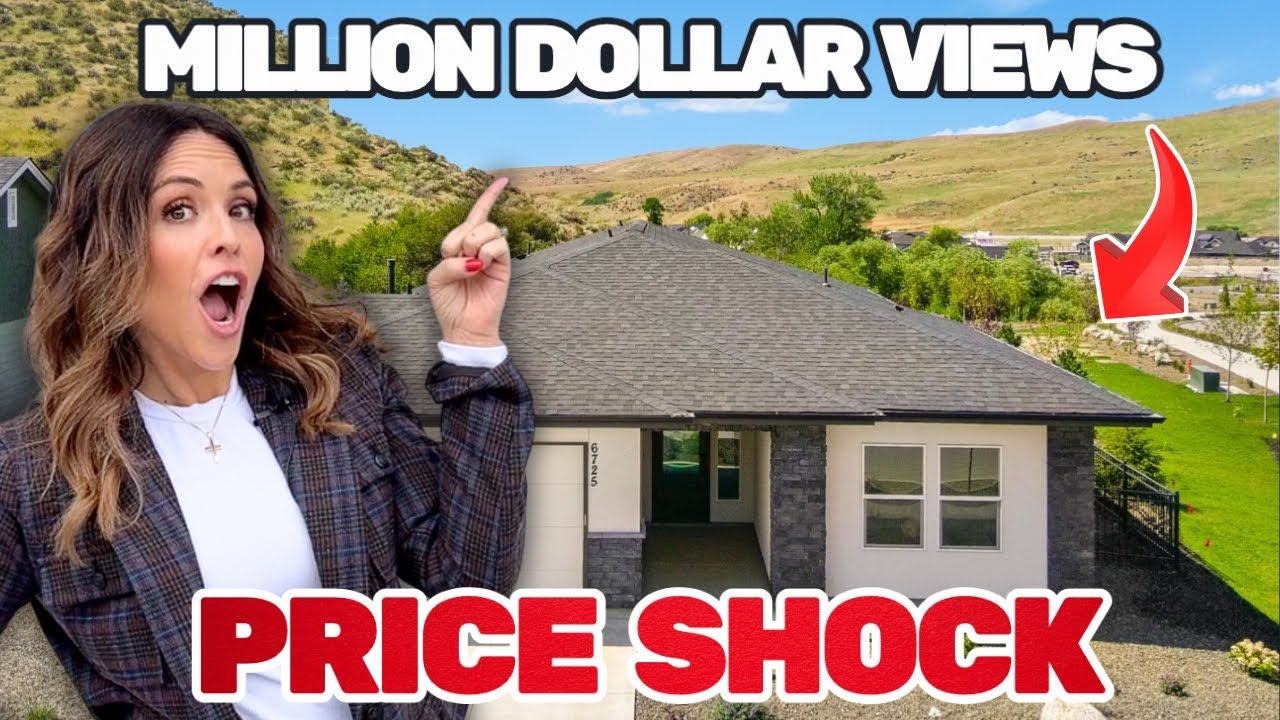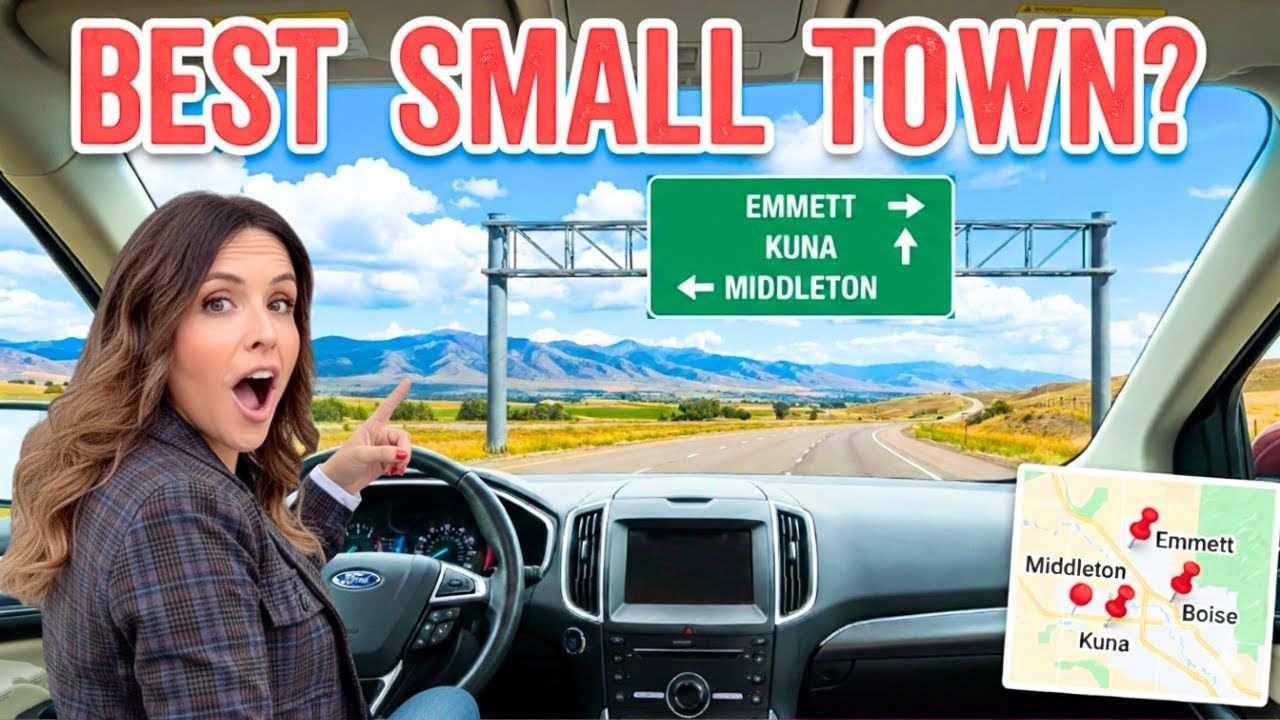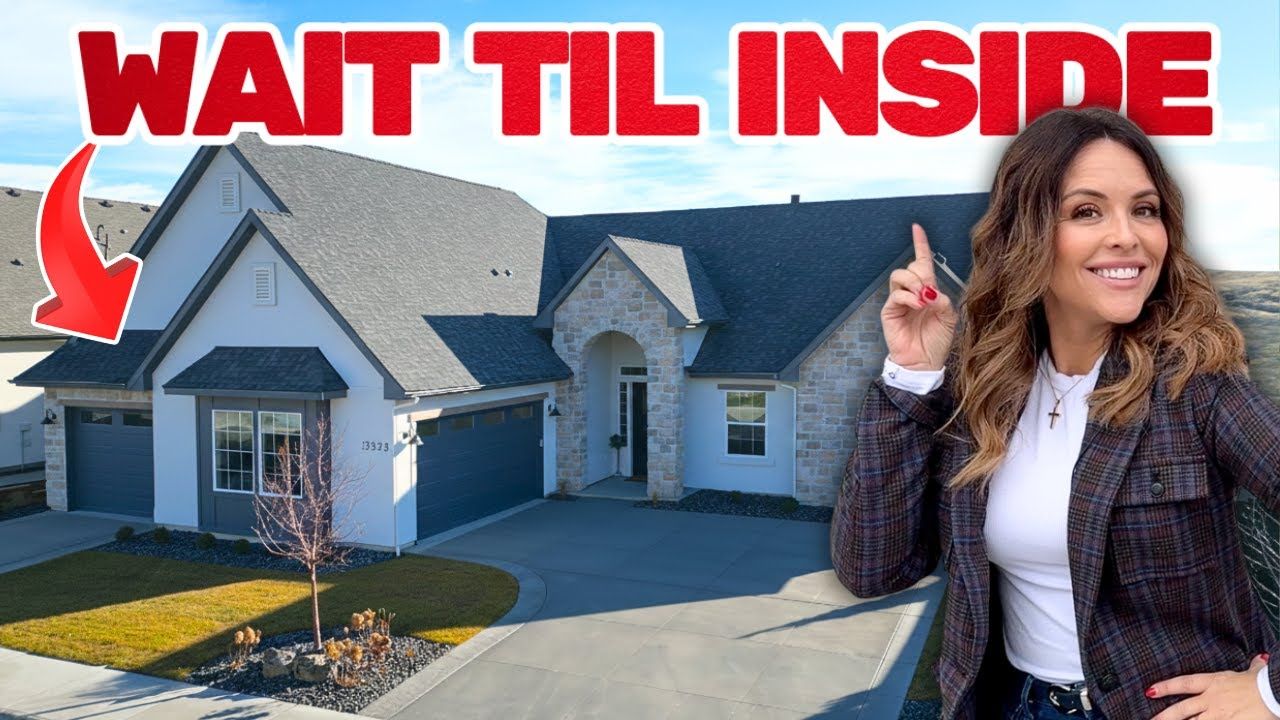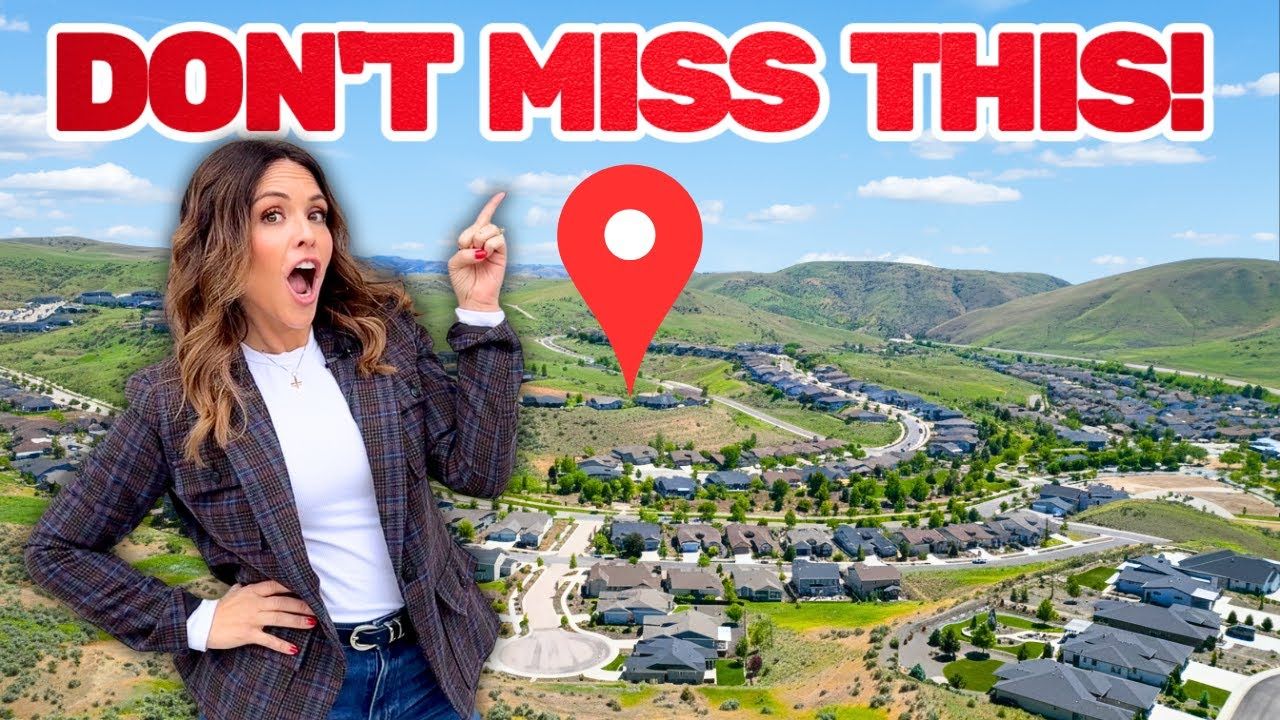12 Things People HATE About Living in Boise Idaho
Hi, I'm Rachel Dau from Living In Idaho. I made a video that digs into the not-so-glamorous side of living in Boise, Idaho — the things people don't always mention in relocation brochures. In this long-form article I’ll walk you through twelve real reasons people sometimes hate living in the Boise area, offer context and practical tips, and help you decide whether these are deal-breakers or manageable trade-offs.
If you're considering living in Boise, Idaho — or already landed here and are wondering what you missed — read on. I’ll be candid, a little cheeky at times, and practical about how to cope with the rough patches so you can make the move (or the decision to stay) with your eyes wide open.
Table of Contents
- Overview: Why This Conversation Matters
- Reason 1 — Rapid Growth: Construction, Chaos, and Change
- Reason 2 — Valley Inversions and Wildfire Smoke
- Reason 3 — “Kuna Bird” Season (Big Fly Season)
- Reason 4 — Allergies: The Good, the Bad, and the Unpredictable
- Reason 5 — Lack of Mature Landscaping in Many New Communities
- Reason 6 — Water Rights and Irrigation Complexities
- Reason 7 — The “shutdown”: Early Closures and Slower Pace
- Reason 8 — Smells: Farm Odors and Local Industry
- Reason 9 — “The Little Itchies”: Algae, Bacteria, and Flood Zones Near Water
- Reason 10 — Job Market Limitations for Certain Skill Sets
- Reason 11 — Lack of Public Transportation
- Reason 12 — Big Yards Equal Big Chores (and Hobby Farms Can Be Short-lived)
- Practical Checklist: Questions to Ask Before You Move
- How to Decide Whether Living in Boise, Idaho is Right for You
- FAQs About Living in Boise, Idaho
- Final Thoughts: The Truth About Living in Boise, Idaho
- Need Help Navigating the Decision?
Overview: Why this conversation matters
Boise has been on many people’s radar for good reasons — affordability compared to major coastal metros, a strong sense of community, outdoor access, and a quality of life that attracts families, entrepreneurs, and retirees. But no place is perfect. When we talk about living in Boise, Idaho, there's a spectrum of experiences: for some, it’s the dream. For others, it’s a surprising mismatch.
This article covers the most common complaints we've heard from newcomers and longtime residents alike. Each reason includes what it actually feels like, how common it is, who it impacts most, and practical ways to prepare or avoid the problem.
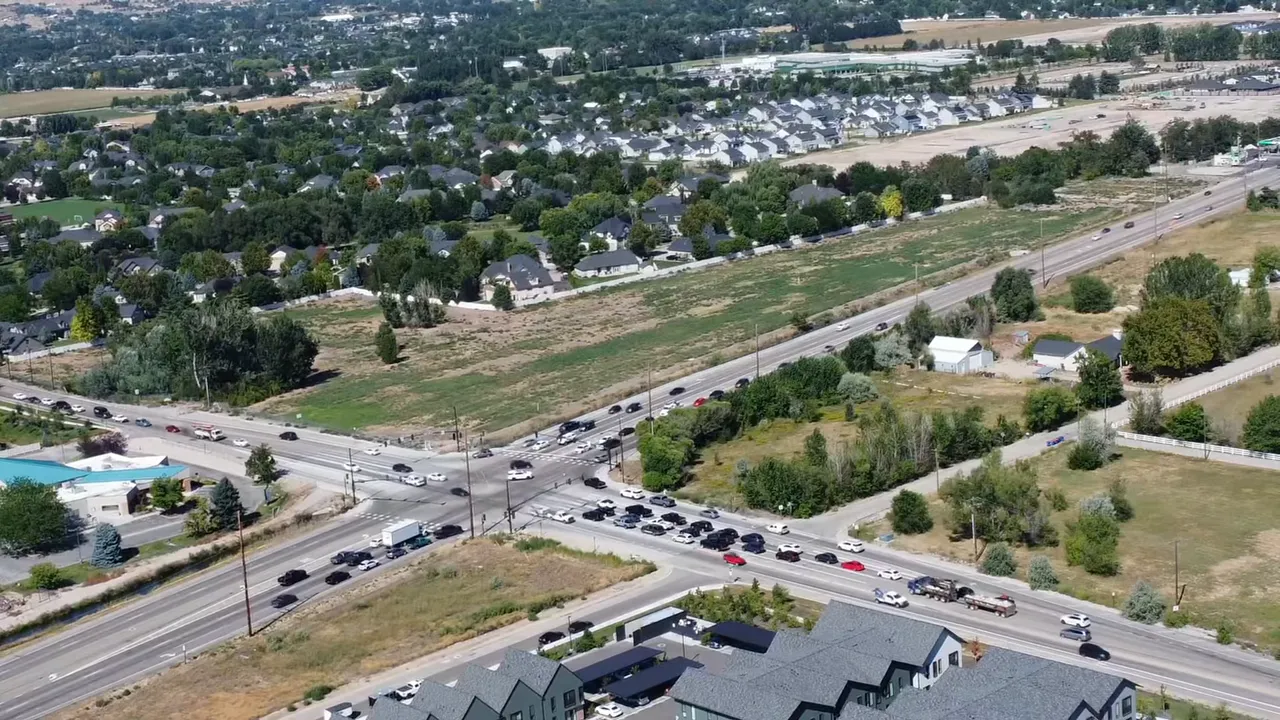
EXPLORE MORE NEW CONSTRUCTION HOMES IN IDAHO
Reason 1 — Rapid growth: construction, chaos, and change
One word sums up this reason: growth. The Boise area has exploded over the past decade. New master-planned communities, retail centers, and roads are popping up constantly. You're not imagining it when streets feel busier or when your commute slowly creeps longer — growth is very real and visible.
What growth looks like:
- Endless construction: model homes, grading, subcontractors, and dust.
- New retail and expanded roads that shift traffic patterns.
- Neighborhoods that feel unfinished because trees and landscaping are brand-new.
Who this bothers:
- People who moved here for quiet or “small-town” vibes.
- Buyers expecting a mature, perfectly landscaped neighborhood immediately.
- Anyone sensitive to construction noise or dust — or families with small children who need predictable routines.
How to handle or avoid it:
- Research the master plan. If a project is 6,000+ acres, expect activity for years.
- Ask realtors about the phasing schedule. Some phases are finished earlier than others.
- Consider older established neighborhoods or pockets that finished development years ago for immediate quiet and mature landscaping.
- Prepare mentally: occasional detours, noise, and temporary retail vacancies are part of the growth story.
Reason 2 — Valley inversions and wildfire smoke
We live in a valley — glorious foothills surround the Treasure Valley — but being in a bowl has environmental consequences. “Inversion” is a meteorological phenomenon that traps cold air and pollution under a layer of warm air. The result: gray, chilly days with stale air and sometimes unpleasant odors.
Wildfire smoke behaves the same way. During wildfire season — whether a local fire or distant blazes in surrounding states — smoke settles into the valley and can hang for days.
Who this impacts most:
- People with asthma, COPD, or other respiratory conditions.
- Families with infants or elderly members sensitive to air quality.
- Anyone who prefers abundant sun year-round.
Tips to cope:
- Check local air quality indexes daily during inversion/wildfire months.
- Consider neighborhoods on the edge of the valley or higher elevations to escape the worst of inversions.
- Install good HVAC filters and consider air purifiers for sensitive family members.
- Plan outdoor activities for days when the inversion lifts — often there are sunny windows you can use for hiking or biking.
Reason 3 — “Kuna bird” season (big fly season)
Yes, I said it: we have a fly season — we call them “kuna birds” — and they can be enormous. Why? Because much of the Treasure Valley sits on historically agricultural land. Where there's farming, there's plenty for insects to eat, and sometimes you get very big, very annoying flies.
This is not a joke for newcomers who love grilling on patios or want seamless indoor-outdoor living. Flies can be a major annoyance during peak season.
Quick pro tips I shared in the video:
- Get screen doors on sliders — some fancy sliders don’t have screens, and that becomes a regrettable design choice during fly season.
- Keep lids on trash, pick up pet waste promptly, and reduce attractants.
- Use fans over outdoor dining areas — restaurants and homes often do this to deter flies.
Who this bothers:
- Outdoor entertainers and people who love patio dinners.
- Families with young kids who like to be outside.
Reason 4 — Allergies: the good, the bad, and the unpredictable
One person’s miracle is another’s misery. Boise’s nickname — the City of Trees — is real. The Treasure Valley is surrounded by foothills covered in trees and vegetation, which is beautiful but can be a cause of allergies.
Some people report fewer allergies after moving here. Others suddenly develop seasonal or new allergies they never had. There’s no one-size-fits-all answer — allergy experiences are highly individual.
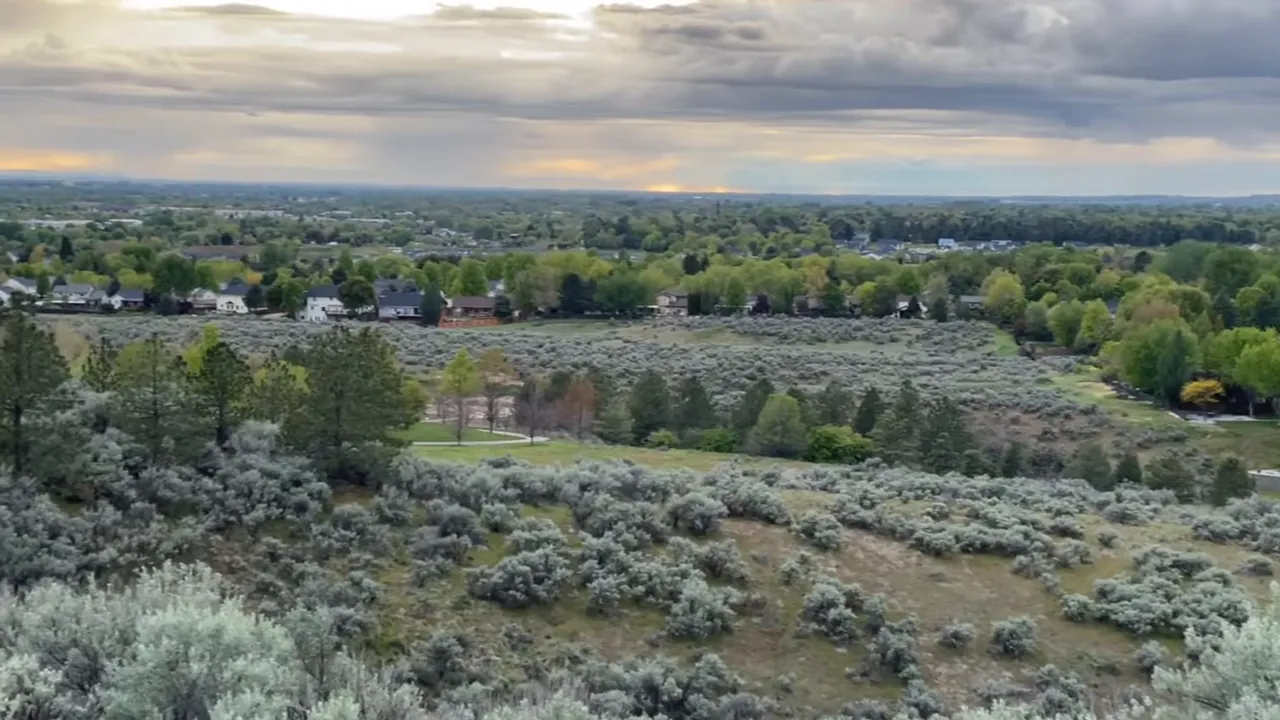
Factors that influence allergy outcomes:
- Type of allergens (pollen, grass, tree pollens, mold spores).
- Season: spring tree pollens, summer grasses, and fall weeds can all cause symptoms.
- Local microclimate and whether you live near irrigated parks, fields, or dry high-desert zones.
Practical advice:
- Consult an allergist before you move if you have severe or complex allergy history.
- Spend a few test visits across seasons to see how your body reacts.
- Choose a neighborhood with less exposed farmland if you're worried about pollen from crops.
Reason 5 — Lack of mature landscaping in many new communities
Here’s the reality buyers don’t always realize: many new neighborhoods are built on former farmland. That gives developers large, flat building surfaces with little existing tree cover. They plant young trees, shrubs, and turf, but it takes years — sometimes decades — to look mature.
So if you imagine moving to Boise for an instant canopy of maple and oak trees lining every street, you might be disappointed if your community is brand-new.
Why developers do this:
- Cost: mature trees are expensive to transplant and maintain.
- Planning: master-planned communities balance budget for amenity and green space differently at various price points.
- Regulations: there are often green space rules, but they don’t guarantee a mature look right away.
How to avoid disappointment:
- Ask to see finished phases or model neighborhoods the builder completed five or ten years ago.
- Prioritize neighborhoods with established landscaping if mature trees matter to you.
- Factor in the time and cost to landscape your own lot if you’re buying new construction.
Reason 6 — Water rights and irrigation complexities
Welcome to Idaho farm country — water matters here in ways that are easy to miss on a cross-country house-hunt. Water rights are a legal thing: someone owns water use rights, often tied to parcels of land or irrigation districts.
Why this is a big deal for homeowners:
- HOAs sometimes require watering landscaped areas, but irrigation water might not come with the lot.
- If you don't have irrigation water rights, you may end up paying large charges to water your lawn — hundreds of dollars per month in hot months.
- Many HOAs include irrigation water in dues, but not all. Knowing which pocket of a development you’re in matters.
How to navigate water rights when you're buying:
- Ask your agent to explain irrigation rights, whether they’re included in HOA dues, and what the summer water bills look like.
- Consider xeriscaping and smart irrigation tech if you want to reduce water dependence.
- Factor potential irrigation costs into your long-term budget before you sign.
Who this hurts most:
- Homeowners on a tight budget worried about summer bills.
- Gardeners or hobby farmers who expect to water heavily without thinking about rights/costs.
Reason 7 — The “shutdown”: early closures and slower pace
In some areas of the country stores and restaurants operate around the clock. In Boise, many places close earlier in the evening, and Sundays can be quiet. It's a cultural rhythm: locals put family time and church services high on the list, and businesses often mirror that schedule.
Why some newcomers don't like it:
- Night owls miss late-night options for dining or errands.
- People from large metros expect 24/7 services and feel restricted.
- Visitors sometimes interpret the pace as "nothing to do" when actually it's a different kind of life.
Why we love it:
Personally, I love the slower pace. People actually go home and spend time with family. Many clients tell me they sleep better, their stress levels drop, and they leave the two-income rat race. That’s a good trade for many people.
How to assess whether you’ll like it:
- If you need late-night options, consider proximity to downtown Boise or more urban pockets with longer business hours.
- If you love community and slower evenings, this could be one of Boise’s greatest assets.
Reason 8 — Smells: farm odors and local industry
This one gets emotional. Some people love it; some hate it. The Treasure Valley still has working farms and some processing facilities (like a sugar beet factory). That means you might occasionally smell manure, fermentation, or other agricultural odors depending on wind and proximity.
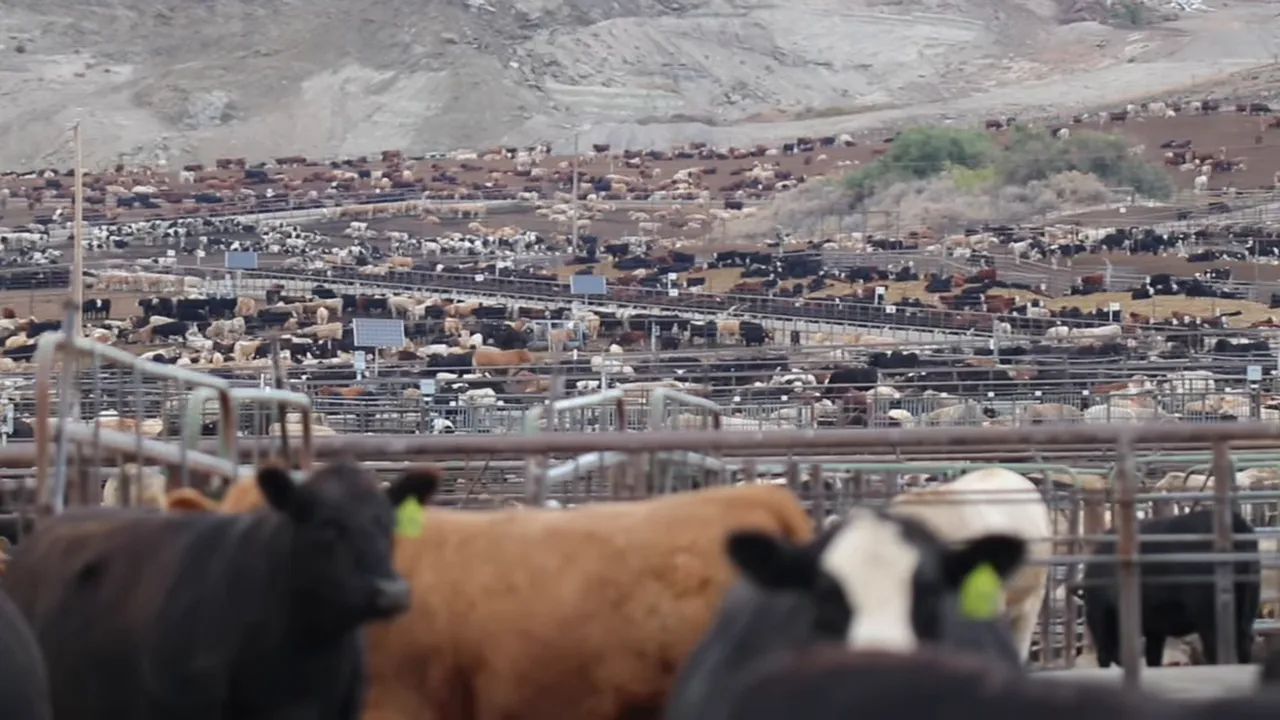
My take (spoiler: I like them):
I’ll be honest — I think the smell sometimes smells like roasted peanuts and makes me crave a peanut butter sandwich. That said, it’s not everywhere. If you moved next to a dairy farm and complain online about cow poop, you probably weren’t paying close attention to the surroundings before you signed.
Practical guidance:
- Drive the neighborhood at different times of day before buying.
- Check community forums but be mindful — complaining about farm smells can be offensive to families who make a living from agriculture.
- Consider distance from large dairies or processors when choosing a home.
Reason 9 — “The little itchies”: algae, bacteria, and flood zones near water
We are blessed with rivers, ponds, and lakes: the Boise River, Eagle Island State Park, neighborhood ponds, and more. But water comes with trade-offs: algae blooms, occasional bacteria spikes, and "the itchies" — short-lived health advisories that can shut down swimming access.
Other water-related complications:
- Flood zones. Some properties require flood insurance — often an unexpected cost for newcomers.
- Wildlife: geese and other animals are part of the local ecology and can be messy.
- Periodic closures: health departments occasionally close sections of water due to bacteria.
How to manage water concerns:
- Research flood maps with your agent and confirm insurance requirements.
- Have alternate recreation plans for polluted or closed days — trails, mountain biking, and community activities are excellent substitutes.
- Choose property types carefully if constant water access is a must for you (private pool vs. natural riverfront).
Reason 10 — Job market limitations for certain skill sets
Boise’s economy is growing, but the job market has nuances. There’s high demand for certain industries like tech, healthcare, and entrepreneurial ventures, but some specialized professions may find fewer opportunities compared to larger metros.
Key realities:
- Less red tape: Idaho is often ranked as business-friendly with fewer regulations, which invites entrepreneurs.
- Growth sectors: healthcare (including VA), tech/computer services, construction, and service industries are expanding.
- Hard-to-fill areas: certain specialized roles can be scarce; salaries may lag behind coastal metro wages for comparable roles.
Real-world example:
My brother had multiple advanced degrees and stellar experience, yet finding the right job took time — and even when opportunities came, some employers relocated roles to other states. That’s the reality for some professionals.
Tips if you’re job-seeking:
- Network aggressively — local communities reward relationship-building.
- Consider remote work or roles that allow relocation while keeping your employer elsewhere.
- If you’re entrepreneurial, Idaho’s lower red tape can be an advantage for launching a new business.
Reason 11 — Lack of public transportation
Public transit is limited outside downtown Boise. If you rely on buses or trains, this is a real disadvantage. Most people get around by car and rideshares fill gaps but can be expensive for daily commuting.
Who this affects:
- People who don't drive or prefer public transit for cost/community reasons.
- Commuters who rely on transit to and from jobs outside downtown.
Alternatives and tips:
- Plan for car ownership or carpools if you live outside central Boise.
- Use rideshare apps like Uber/Lyft for occasional trips — but budget accordingly.
- Consider neighborhoods near downtown or major corridors with some transit options if transportation is a key concern.
Reason 12 — Big yards equal big chores (and hobby farms can be short-lived)
One of the most repeated regret stories I hear: people buy acreage, start with the best intentions, and a couple of years later are overwhelmed by maintenance. Mowing, irrigation, animal care, and general upkeep add up fast.
The honeymoon phase:
Many new hobby-farm owners live in the “summer of love” for the first season: canning, tinkering, enjoying chickens and garden harvests. Over time the daily chores and costs can climb, especially if both partners are working or the initial enthusiasm fades.
Options to manage yard-life balance:
- Buy the property that fits your lifestyle — smaller lots with scenic views, ponds, or HOA maintenance can be a smart alternative.
- Hire help: local landscapers, yard services, or a part-time farm hand can keep things manageable.
- Choose builders who offer similar homes on varying lot types — you can get the house you want with lower-maintenance lot choices.
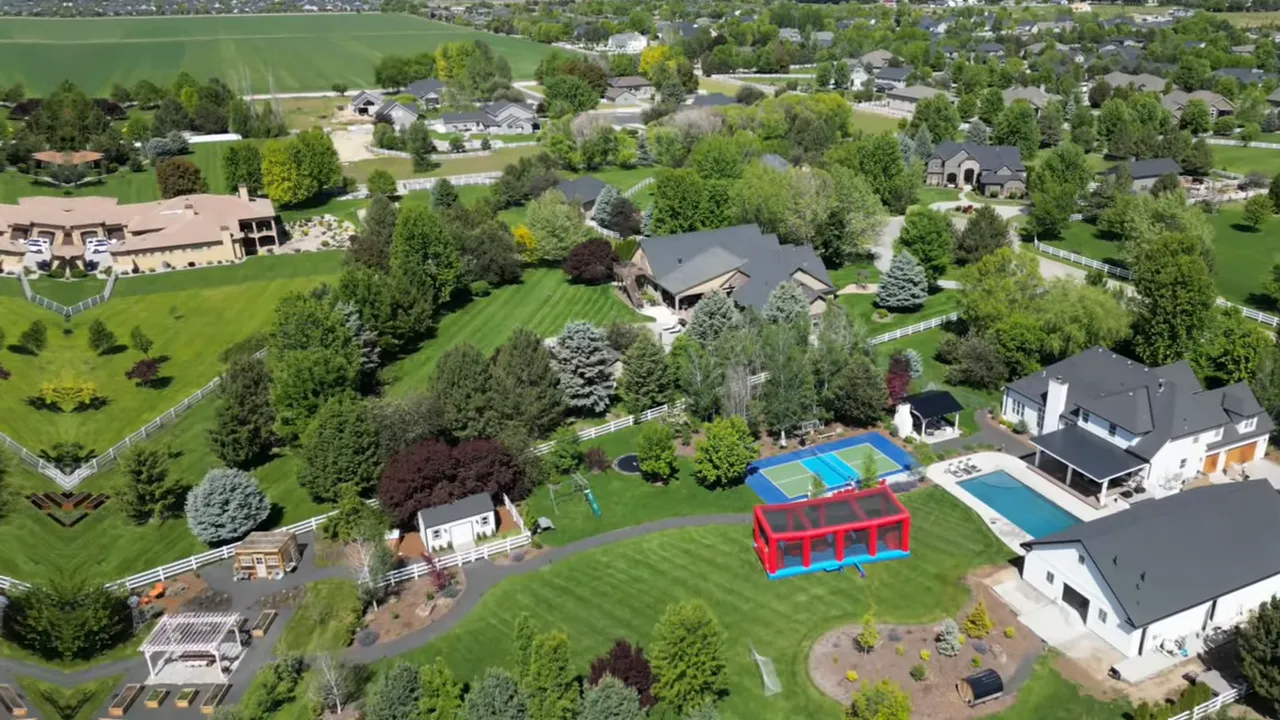
Practical Checklist: Questions to ask before you move
Before you decide on a neighborhood or write an offer, here are the top questions you should get clear answers to. Many of these come directly from the complaints I hear the most:
- Is the neighborhood in a master plan? If so, how many more years of development are expected?
- Are irrigation/water rights included in the HOA dues? What do summer watering costs typically look like?
- How close are major farms, dairies, or industrial facilities? Are odors or agricultural operations likely to affect the property?
- Is the property in a flood zone? Will flood insurance be required?
- Does the property have a slider that supports a screen door? (Yes, ask about fly season!)
- What is the local air quality during winters and wildfire seasons?
- Is public transportation nearby, and how long are typical commutes during rush hour?
- If you want a hobby farm, are you prepared to budget for ongoing upkeep and potential help?
How to decide whether living in Boise, Idaho is right for you
There’s no one-size-fits-all answer. It comes down to trade-offs. Boise offers an excellent quality of life for many: outdoor access, a strong sense of community, favorable tax climate compared to some states, and opportunity for entrepreneurs. But those benefits come with the downsides we discussed.
Use this decision framework:
- Rank your priorities: is proximity to nature more important than nightlife? Do you value mature landscaping over new construction prices?
- Test it: visit across seasons — see inversion months, wildfire season, and the fly season to make sure you can live with each.
- Crunch the budget: account for irrigation or flood insurance, commute costs, and potential landscaper or hobby-farm help.
- Talk to locals: ask homeowners who’ve lived in the neighborhood for several years what changed and what they wished they knew.
FAQs About Living in Boise, Idaho
Will I be able to find work if I move to Boise?
It depends on your industry. Healthcare, tech, construction, and service industries are expanding. If you’re specialized in a niche role that’s concentrated in larger metros, you might find fewer local opportunities. Remote work and entrepreneurial ventures are viable options here.
How bad are wildfires and smoke?
Smoke can be bad during peak wildfire seasons, especially when the air gets trapped in the valley. If you have respiratory issues, investigate neighborhoods at higher elevations or outside the worst-affected pockets, and plan to use air purifiers during smoky days.
Are water bills expensive?
If irrigation is included, it won't be a surprise. If not, summer watering can get expensive. Ask whether irrigation rights are included in HOA dues and budget for potential added costs if they're not.
Do people really complain about the smell of farms?
Occasionally, yes. Farm smells are part of agricultural life. If you live near dairies or processing plants, expect that some days might smell strongly of farm odors. It’s not everywhere, but it’s a real consideration for some neighborhoods.
Are the lakes and rivers safe to swim in?
Most of the time yes, but water bodies can experience algae or bacteria blooms that temporarily close sections for health reasons. Know your local spots, check advisories, and have backup recreation plans for closed days.
What about public transportation?
Public transit is limited, particularly outside downtown Boise. If you need reliable transit, look for areas near the few transit corridors, or plan on car ownership and rideshares.
How can I avoid the maintenance burden of a big yard?
Pick smaller lots, HOA-maintained yards, or properties with pond views rather than large usable acreage. Consider hiring yard care or sharing chores with neighbors or family.
Is living in Boise, Idaho safe for families?
Generally yes. Boise and the surrounding valley are considered family-friendly with good schools, parks, and outdoor activities. But always check local school data, crime stats, and neighborhood dynamics for the specific area you’re considering.
Final thoughts: the truth about living in Boise, Idaho
Boise is not a perfect paradise, and it shouldn’t be presented as such. Growth, inversions, seasonal nuisances, infrastructure trade-offs, and local quirks all shape the experience of living here. But many of those hiccups are manageable if you prepare and choose the right neighborhood for your needs.
If you value connection, outdoor access, a slower pace, and a community that still feels “start-up friendly,” Boise can be an incredible place to build the next chapter of your life. If you need 24/7 nightlife, constant public transit, or a zero-maintenance hobby farm — you may want to rethink your expectations or pick a different pocket of the valley.
Move here informed: visit across seasons, talk to locals, and plan for the practical details like water rights and yard maintenance. Those simple steps will save you headaches and regret down the road.
Need help navigating the decision?
If you're seriously considering living in Boise, Idaho and want personalized advice — from neighborhood scouting to understanding irrigation and flood insurance — reach out to us at 208-295-0405 . A little planning goes a long way in turning potential headaches into manageable trade-offs.
Be blessed, and good luck with your move or your next steps as you weigh whether living in Boise, Idaho is the right fit for you.

Helping You Find Home in the Gem State
We are your local real estate team focused on helping buyers, sellers, and relocators navigate the Treasure Valley and beyond. From new construction to RV Bay homes, our team combines local expertise with real-world content to make your move easy and informed.
LIVING IN idaho
Check out our YouTube videos for neighborhood tours, model home walkthroughs, and honest tips about relocating to Idaho.

